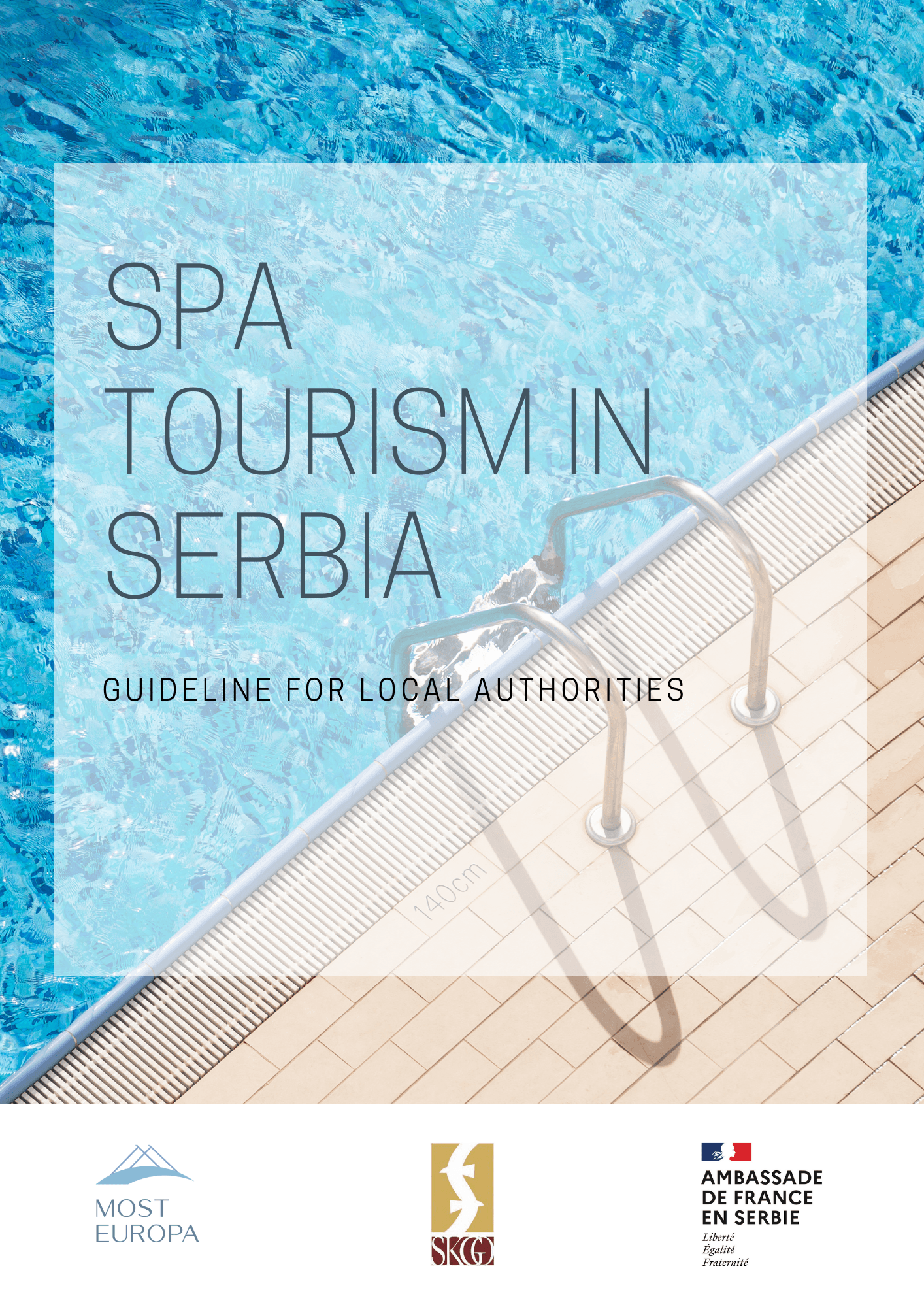Publication: Spa and health tourism bear remarkable potential in Serbia if targeted by a more ambitious policy
Natural spa resources represent one of the most profitable development potentials of local self-governments in Serbia. However, the lack of strategic plans and relevant laws approaching this resource prevents local self-governments from commercialising this potential. We provide local self-governments with concrete proposals for strengthening spa tourism.
Funded by the French Embassy in Belgrade, Most Europa has created this guideline for the Standing Conference of Towns and Municipalities (SKGO) in Serbia to be given to local authorities as support in developing a strategy for spa tourism.
Why did we prepare the guidelines?
Serbia has promising potential for developing a spa sector with 50 spas and around 500 cold and hot mineral water sources. Natural spa resources represent one of the most profitable development potentials of local self-governments in Serbia. However, the lack of strategic plans and relevant laws approaching this resource prevents local self-governments from commercialising this potential.
The paper provides local self-governments with concrete proposals for strengthening the spa tourism sector in Serbia. It discusses good and bad practices, advantages of public-private partnerships, opportunities and trends in health and spa tourism, and funding options. The guideline concludes with recommendations for Serbian officials in local self-governments to develop spa tourism in their territories:
Health tourism is a traditional form of tourism with a long history in Europe, with new trends emerging all over the continent, such as wellness, self-care, and the demand for sustainable and rural tourism.
Located predominantly in small towns and municipalities, spa centres respond to these trends. That makes spa tourism a powerful source for socio-economic development in Serbia. Although a niche, it has potential in Serbia if a more ambitious and explicit policy targets it:
It is a tool to counter seasonality. Targeting a demographic that does not follow the usual tourism cycle, i.e. seniors or digital nomads, while offering products and services that are not dependent on the weather can lead to promising results.
Spa tourism is labour-intensive, both in the low-skilled and high-skilled sectors where medical knowledge is required. That makes spa tourism leverage economic development and job creation in rural areas.
Spa tourism gives incentives to protect, promote and manage the environment and natural resources because clients expect healthy and relaxing surroundings. Bolstering spa tourism aligns with the EU Green Agenda with sustainable and green development, one UN Sustainable Development Goal.
To seize the potential of spa and wellness tourism in Serbia, we recommend local self-governments to
Combine Spa Tourism with an active role in environmental protection;
Define and communicate the structure of spa tourism in Serbia;
Invest in infrastructure;
Strengthen and broaden institutional capacities and influence.
How to achieve that concretely, you can read in our guidelines!
